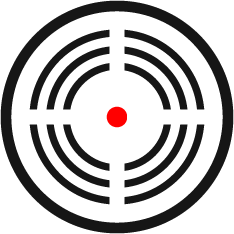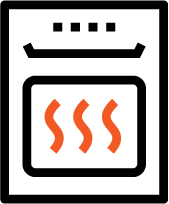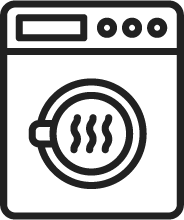Fire Safety Advice for Residents with Communal Areas

Smoke alarms
Smoke and Carbon Monoxide alarms
Redditch Borough Council have a legal duty to ensure smoke alarms are installed in each of its rented properties and dwellings, along with the installation of carbon monoxide alarms in any room used as living accommodation which contains a fixed combustion appliance excluding cookers.
There is also a legal duty to ensure smoke alarms and carbon monoxide alarms are repaired or replaced once informed and found to be faulty.
It is essential to protect your home by having working smoke alarms installed.
Smoke alarms are the first responder in the event of a fire, so it is vital you have adequate protection, that is in full working order.
Carbon monoxide (CO) is an extremely poisonous gas that is tasteless, odourless and colourless; it is produced by the incomplete burning of fossil fuels, such as gas, wood and coal. The best way to stay protected is with alarms.
For guidance on how to test your alarms see pages 46 and 47 of our Handy Hints Repairs booklet which contains guidance on fire alarm and carbon monoxide alarm testing.
Guidance on fire safety in the home is also available from GOV.UK
A fire can start anywhere in your home, and the easiest way to protect you and your family is to have working smoke alarms fitted. Smoke alarms provide an early warning of a fire and give you time to make your escape.
It’s important to ensure smoke alarms are fitted in the right place, and you should always follow the manufacturer’s fitting instructions. If your smoke alarms are missing or defective contact Redditch Borough Council for an assessment.
Make sure you have a working smoke alarm in your main circulation area hallway/landing; if not, fit one as soon as possible.
To fully protect you and your family, it is recommended that smoke alarms are also fitted in the lounge and a heat alarm is fitted in your kitchen.
If your flat is on more than one level, you should fit smoke alarms on every level.
Test your smoke alarms monthly or according to the manufacturers recommendations.
Never cover your alarms, and never disconnect or remove the batteries from your alarms.
Stop Fires from Happening
By taking a few simple steps, you can stop fires from happening in your home.

Smoking
Ideally, smoke outside in fresh air, clear of the building, and dispose of cigarettes safely
Do not smoke in bed or anywhere you could fall asleep
Make sure cigarettes are put out properly and use a proper ashtray
Keep matches and lighters out of reach and sight of children
If you use e-cigarettes, follow the manufacturer’s instructions and use the correct charger

Cooking
Never leave pans unattended when cooking
Never overfill chip pans. Never throw water on a chip pan fire; you should turn off the heat and close the door to the kitchen
Never leave children alone in the kitchen whilst cooking

Electrics
Electrical Safety Checks, (EICR Electrical Installation Condition Report)
Redditch Borough Council are required under best practice guidance to test the electrical installation within your property every 5 years. You will receive a letter from us providing you with a scheduled appointment date, we will require access to your property for the test to be completed, this can take up to 4 hours so please contact us, if you need to re-arrange this appointment.
We will need access to all electrical points for the inspection to be fully completed.
What will be inspected and tested?
The ‘fixed’ electrical parts of the property, like the wiring, the plug sockets, the light fittings and the consumer unit (fuse box) will be inspected.
What will happen in the inspection?
We will arrange for a qualified operative to inspect the fixed electrical installations in your property. The time the inspection will take will vary depending on the size of the property and the quality of the electrical installations being inspected.
Typical things that will be identified:
- Any of your electrical installations are overloaded
- There are any potential electric shock risks and fire hazards
- There is any defective electrical work
- There is a lack of earthing or bonding
What about electrical appliances like cookers, fridges, televisions etc.?
The Regulations do not cover electrical appliances, only the fixed electrical installations.
You’re responsible for making sure that any of your own electrical appliances are safe.
Never overload electrical sockets.
Follow the manufacturer’s instructions when using extension cables.
Do not leave items on continuous charge.
Turn off electrical appliances when not in use, and don’t leave them on standby.
Follow safety guidance issued on product recalls, such as tumble dryers, washing machines, fridges, freezers, and other appliances.
Regularly remove fluff from tumble dryers.
For more information go to Guide for tenants: electrical safety standards in the private rented sector - GOV.UK (www.gov.uk)
You may also want to consider registering your own electrical appliances with a product registration scheme.
For more guidance see our Handy Hints Repairs booklet which contains lots of electrical safety information.
Buy Safe, Be Safe: avoid e-bike and e-scooter fires


Heating
Keep portable heaters well away from anything that can catch alight, such as furniture and bedding.
Never use damaged or defective heaters, and always follow the manufacturer’s safety advice.

Candles
Candles, tea lights and incense burners should only be placed in stable, heat resistant holders.
Keep them clear of any materials that may catch fire, such as curtains, fabrics, furniture and clothes
Never leave children alone with lit candles.

Housekeeping
Never leave rubbish, waste or any belongings in the common stairways or corridors; this could affect you and your neighbour’s safety.

Stay safe when you go to bed
Close all doors, as this helps to prevent fire and smoke spreading
Switch off and unplug electrical appliances, such as TVs
Check that cookers and heaters are turned off
Make sure candles and tea lights are extinguished
Avoid charging mobile phones, e-cigarettes, etc. overnight
Don’t store or charge mobility scooters on the only route out of your flat, such as the hallway. Overnight, scooters should be kept in a separate room, such as the lounge or a second bedroom
What to do in the event of a fire in your own flat
Make an escape plan, be prepared, don’t wait until it happens, and make sure everyone knows how to get out safely.
Always make sure doors and any escape windows can be easily opened in an emergency. Make sure any keys are available and kept where everyone can find them.
Don’t store combustible materials in hallways, landings or balconies which could obstruct your escape.
If your smoke alarms operate or you discover a fire, follow your escape plan.
Close the door of the room where the fire is.
Make sure everyone is alerted and leave the building as quickly as possible.
Make sure your flat entrance door is closed behind you.
Make your way out of the building.
Call the fire and rescue service by dialling 999 or 112. Give them your address and flat number and wait until they confirm this back to you.
What to do in the event of a fire in another flat or other part of the building (where a ‘stay put’ policy is in force)
Your building is designed and constructed to restrict the spread of fire. Therefore, a fire should not spread from one flat to another. Stairways and corridors are also constructed of fire-resisting materials, which makes then safe to use in the event of a fire elsewhere in the building.
If you become aware of a fire in another flat or elsewhere in the building, you should be safe to remain in your flat while the fire and rescue service deal with the fire.
However, you should always leave your flat if it becomes affected by smoke or fire, and if told to leave by the fire and rescue service. If you are in any doubt and feel unsafe in your flat, and it’s safe to use the common escape stairway, you should make your way out of the building.
If you are in the common parts of the building and you become aware of a fire, leave the building immediately and phone the fire and rescue service.
Feedback & Share
Share this page on social media
